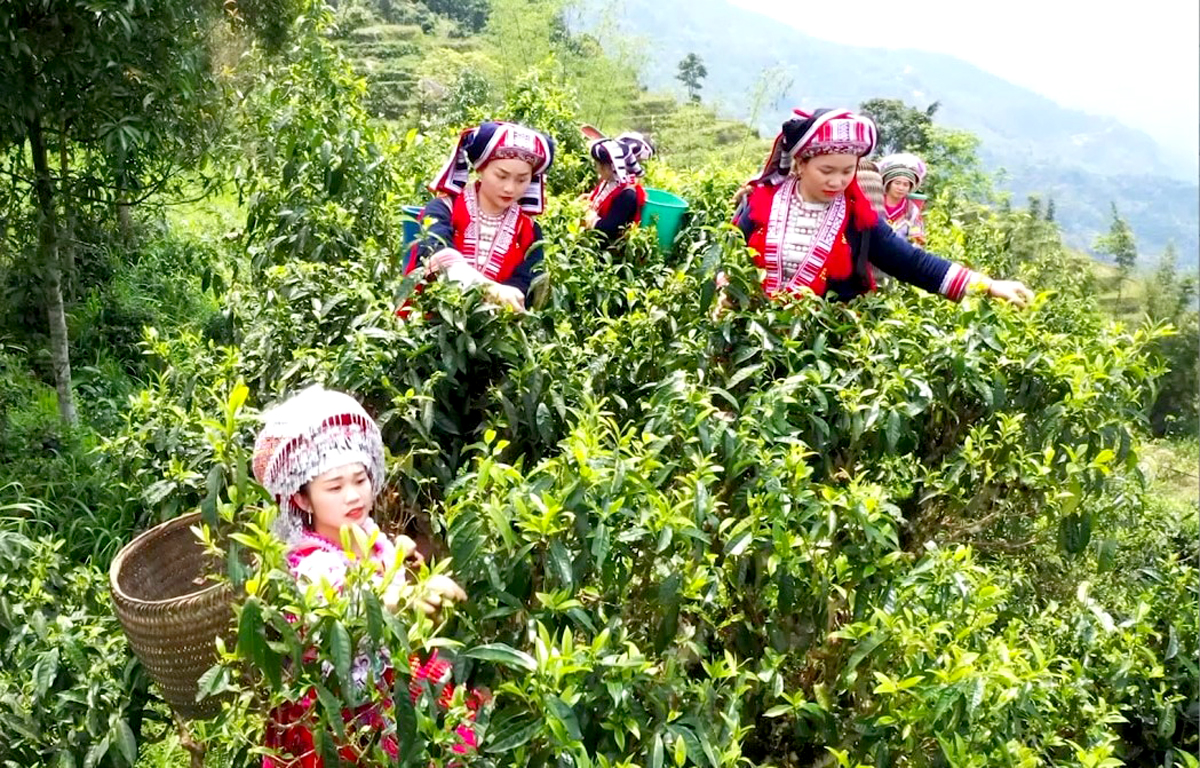Organic agricultural production — effective and sustainable direction
BHG - In recent years, the provincial agricultural sector has actively promoted propaganda to encourage and guide farmers to expand organic production. This initiative aims to transform traditional farming practices, enhance economic value, and meet the growing demands of consumers.
With its diverse microclimates, Ha Giang boasts a variety of unique agricultural products, such as Shan Tuyet tea, Bac Ha honey, Sanh oranges, medicinal herbs, black pigs, and yellow cattle. Under the "Development of Organic Agriculture in Ha Giang Province until 2025, with orientation to 2030" project, provincial departments, agencies, and district and city government bodies have been focusing on developing organic agricultural products according to specific regions. The designated organic farming areas include Shan Tuyet tea, citrus fruits, temperate fruit trees, organic rice, and organic medicinal herbs. The organic livestock areas are focused on yellow cattle, local black pigs, and organic honey production.
 |
| Locals in Nam Ty Commune (Hoang Su Phi District) harvest Shan Tuyet tea. |
Under Decision No. 298, issued by the Ha Giang Provincial People's Committee on March 2, 2023, the certified organic Shan Tuyet tea plantation area covered 1,229.26 hectares out of a total of 3,902 hectares by 2024, with an additional 10.6 hectares being newly certified. Certified organic citrus fruit cultivation covers 10 hectares, while organic vegetable farming spans 30 hectares. However, other crops and livestock, including temperate fruit trees, high-quality rice, medicinal herbs, yellow cattle, black pigs, and Bac Ha honey, have yet to receive organic certification.
However, organic agricultural production still faces several challenges. Many businesses and cooperatives lack the financial capacity to maintain and renew organic certification and are relying heavily on state support. The coordination and supervision of organic production among facilities and households remain inconsistent. Additionally, consumer awareness is still limited, with many unable to differentiate between certified organic products and uncertified ones. Moreover, organic farming requires strict adherence to numerous regulations, posing significant challenges for production organisation.
To address these difficulties, the Ha Giang Provincial People's Committee has directed local authorities to carry out organic agricultural development plans suited to real conditions. Efforts should focus on maximising natural advantages, ensuring a safe production environment, and strengthening collaboration between businesses and farmers to improve the products’ quality and values.
To achieve the 2025 goal of maintaining and expanding organic certification, the agricultural sector has been guiding businesses, cooperatives, and farmers to apply technological advances in association with traditional practices towards the use of biological products and organic fertilisers instead of chemical fertilisers. Additionally, authorities have been intensifying inspection and supervision of production facilities, establishing traceability systems, and ensuring the quality of certified organic products.
Organic farming is an inevitable trend in modern agriculture. Expanding organic production models will generate safer products that meet the increasing demands of consumers.
YEN HOA





READER COMMENTS